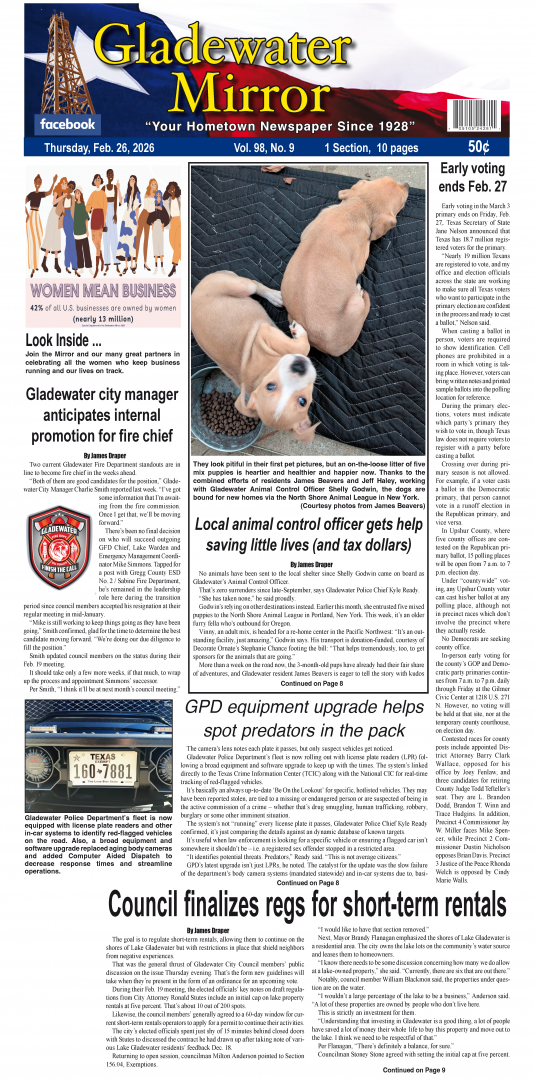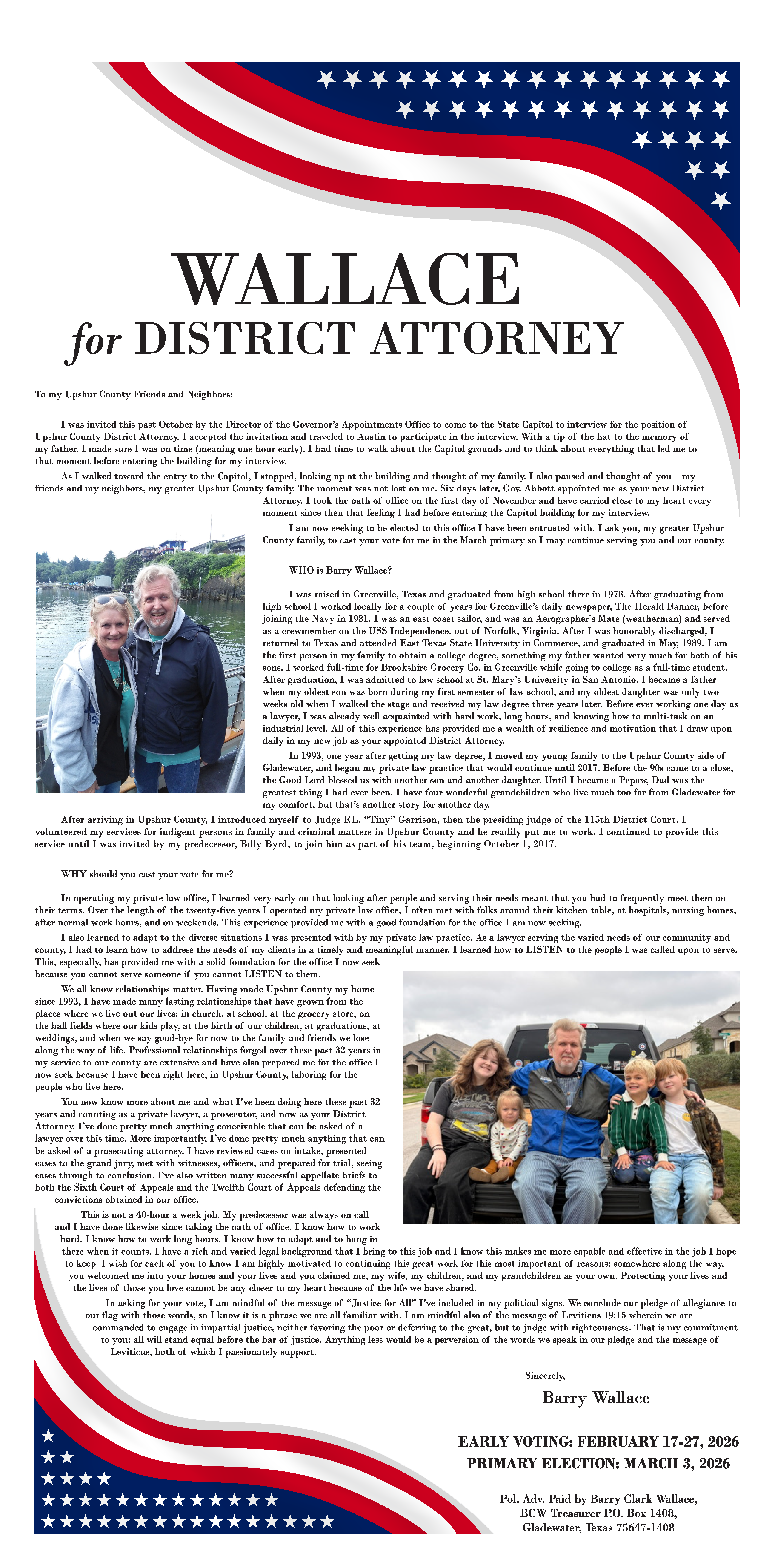By James Draper
According to online data, the average annual pay for a registered Sanitarian in Texas is about $41,500 – an ‘environmental health officer’ salary isn’t in the budget for the City of Gladewater right now, so Al Harrison continues doing what he can to keep a watchful eye on local commercial kitchens.
Officially, Harrison is Gladewater’s ‘Chief Building Official,’ but the nature of his post is such that myriad other duties become attached to the office – from public works to code enforcement to health inspections – even as the number of hours in a given week stays the same.
In Gladewater, “I inspect a restaurant when they open and when they get started,” Harrison said. “When everything’s clean and they hit all the requirements, I let them operate until someone complains, then I go and inspect them again.”
If there are no complaints, the eatery operates as-is.
Those aren’t the only food safety inspections, of course.
“I do the schools once a semester, then I do the daycares once a year so they can meet the state requirements.”
All things considered, Gladewater ISD is the prime example of a food prep operation that’s doing everything right, Harrison praised.
“The school’s great at it. The school’s excellent. Their staff is excellent,” he added. “Not saying anything about the other restaurants, but the school and their food dating process and the way they do stuff is top-notch for the kids – so they can feel good about how they’re clean and healthy and never serving anything bad.”
For Darla Allen, director of food services and custodial for Gladewater ISD, it’s very important to her and other cafeteria system staffers that they’re at peak efficiency when it comes to food safety.
“We just want to make sure that the kids get good, quality food and we keep them safe,” she said. “Especially with the kids that have allergies at our Primary campus.
“We make sure nobody gets sick, and we take care of business.”
Allen’s been with the district 28 years and has spent about a decade as food services director. She’s thankful for her custodial background and believes it was good experience to prepare her for food safety.
“With food, you have to be so careful with it. We have to make sure we keep temperatures and everything clean.”
Allen has 21 employees across four cafeterias at the district. They spent Aug. 1-2 in another round of food safety continuing education.
“We do a lot of training at Region VII and Region VIII to make sure we’re on top of our processes and procedures. Every summer we do,” she noted. “It’s required by the state, but my group’s really good: they want to learn anything they can learn and to do better. They want to make sure our kiddoes get the best of what we can give ‘em.”
Addressing commercial setups on a complaint basis is the happy medium for Gladewater’s current capabilities.
“The proper health inspector is a Sanitarian, a person with a degree in health safety. That’s not in our budget right now,” Harrison noted. That said, any complaint of any kind is taken seriously: “They saw a roach; they didn’t like the food; they saw something they didn’t like when they were being served. I will respond to that complaint and go do a complete inspection.”
Are the employees wearing food prep gloves? Hairnets? Are they washing their hands? Are they, in general, following the rules that ensure the health and safety of their customers? Harrison makes sure all the boxes are checked.
“The cooking and storage is all done to proper temperatures. No food is ever in the unsafe zone. Prep areas are kept clean. There’s no cross contamination,” Harrison said, rattling off requirements. “You’re not going to have chicken sitting on top of your vegetables or something else in your refrigerator where the chicken drips down – that’s the worst thing in the world.
“You make sure the refrigerators are at the proper temperature and that things are stored properly and dated. They have to date it when it comes in, and they have to date it every time they open it.”
That can be a tedious task in a bustling restaurant at peak hours, he allowed, but it’s necessary. It’s required.
“They want speed, and for someone to go in and re-date every time they open stuff, that’s one they’re not good at, but they try.”
Especially when they know the public’s watching – food safety concerns and complaints can be called in to Gladewater City Hall at 903-845-2196.








